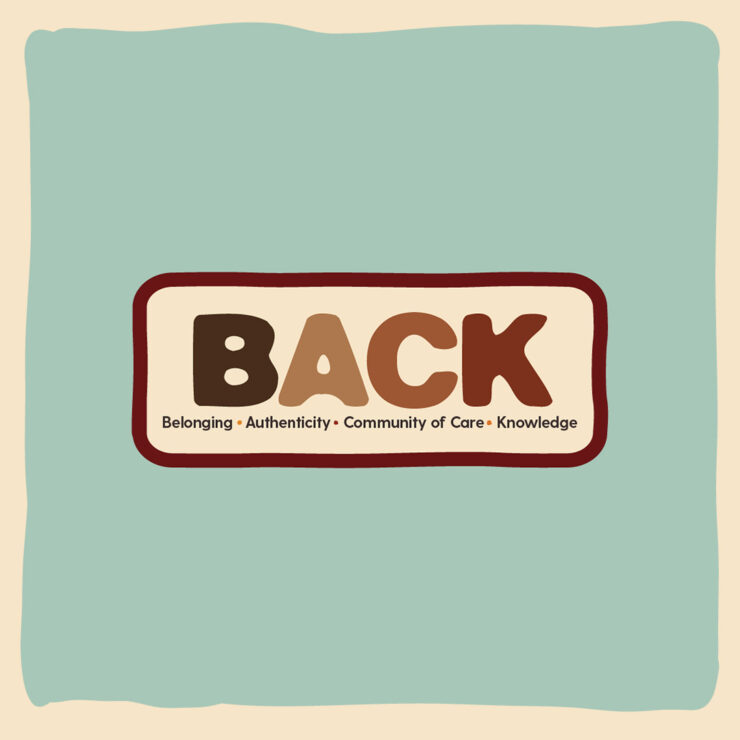BACK’s cohort model will give students peers and facilitators with similar lived experience

Belonging, authenticity, communities of care, and knowledge — these are the pillars of the new mental health initiative BACK that was launched to support BIPOC students at UVic. BACK is a collaborative effort between the Students of Colour Collective (SOCC), UVic Pride, the Office of Student Life (OSL), and other groups on campus. The initiative aims to fill gaps in mental health programming that BIPOC students often experience based on intersecting aspects of their identities.
“There’s already a lot of stigma and barriers that affect students when it comes to accessing mental health,” said SOCC coordinator Ruth Nakalyowa, who has been a key player in creating the initiative. “The stigma deepens and the barriers worsen when you’re also a person of colour.”
The BACK program offers four different communities of care to BIPOC students at UVic. Each community, or cohort, will meet online once a month with a facilitator with lived experience who will offer their varied expertise and guide the group. Two of the cohorts are based on the identity of the students and two on the specific therapy approach being offered by the facilitator.
One cohort is open to students who identify as BIPOC with disabilities; the other is for Two Spirit, Queer, and Trans (2SQT) BIPOC students. The other two cohorts are an expressive arts therapy-based approach and a tarot, somatic, and additional approaches–based group.
BIPOC students can apply to the cohort they feel suits their needs the most. The four facilitators were chosen based on both their lived experiences and expertise.
“We were scrounging around for quite a bit for local people, as well as people across the continent, who had experience supporting students, youth in particular and youth of colour, around identity and institutions,” said Nate Ponce, UVic Pride’s coordinator. “We looked for people who had a variety of intersections, such as varying ability and queer identities and [nationality].”
The BACK initiative is a response to data that SOCC, UVic Pride, and OSL gathered from surveys and a focus group earlier in the year. The OSL conducted a survey that received over 300 responses from students. The results indicated that there were support gaps in the wellness of BIPOC students.
“We had all our data, and we realized that a lot of BIPOC students felt like their needs weren’t being met in terms of support from the university for their mental health,” said Nakalyowa. “We didn’t just want to sit on this data, we wanted to do something about it.”
One of the largest gaps that was found was that BIPOC students felt they could not find counsellors who had their same lived experience, or who understood it. Other gaps were the high costs for some mental health programming, and accessibility.
“The issues that [the program is] responding to are scattered throughout the university and its different systems and services,” said Ponce. “What the BACK system is going to do is hopefully provide students a bit of a cushion as they navigate it this year and help us gain insight on how to fix those issues.”
Ponce said that joining the initiative is not only an opportunity to meet other students with similar identities and lived experiences, but it’s also a chance to leave a legacy for future students.
“Posterity is one of my values; I definitely want good things for the people who come after me,” Ponce said. “This [program] is one way to do that.”
Nakalyowa added that she hopes BIPOC students will consider registering, saying, “This is for them and we want to make sure their needs are being met and we’re always open to questions and feedback from students.”
The BACK program will run from November 2021 to May 2022. BIPOC students can apply for the cohort of their choice through SOCC’s Engage platform. The deadline to apply is Dec. 10.







